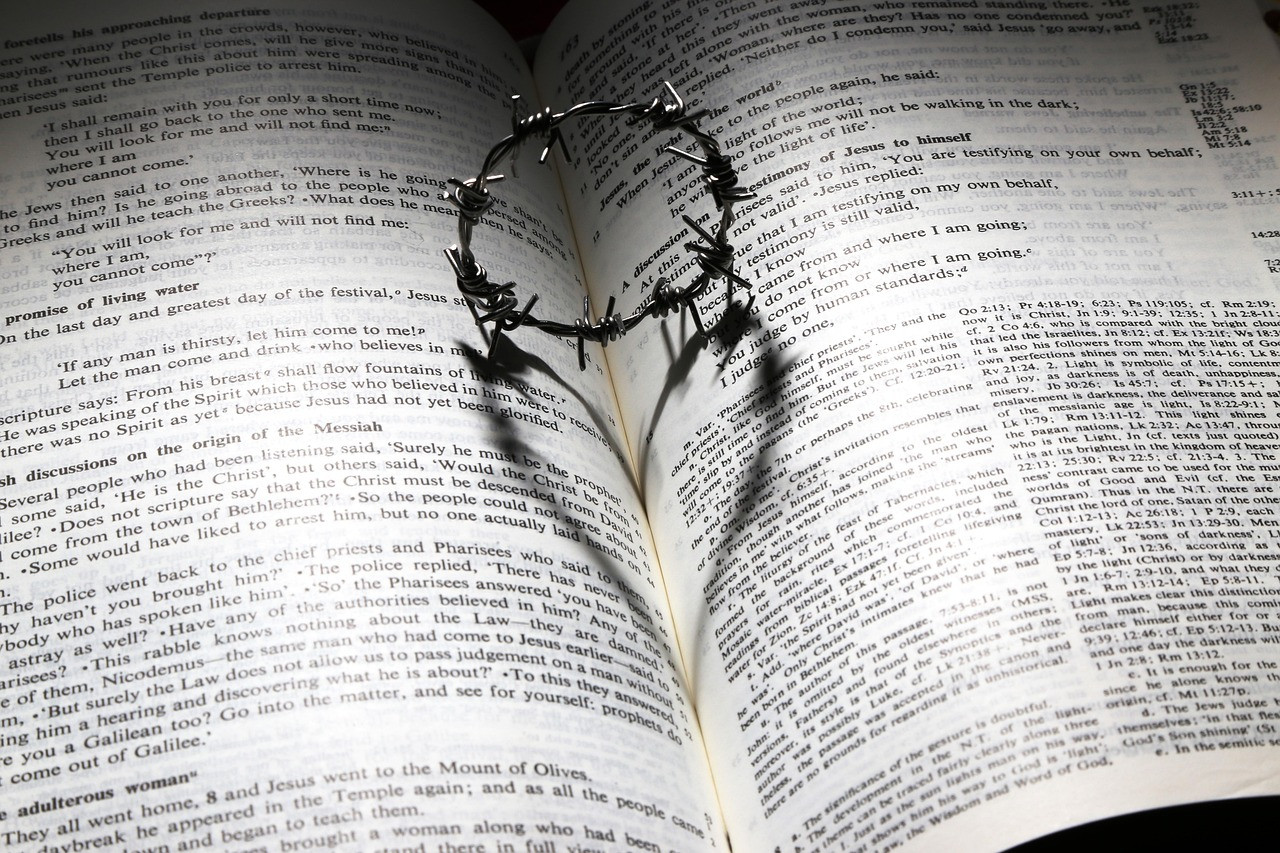
Codependent.
This is a word that can come loaded with emotion, responsibility, shame, guilt, self-doubt, people-pleasing, and fear of going against the way your protective survival skills have trained you to go about life.
Well, this week, a variation on this theme kept coming up in my sphere of observation. From counseling and coaching meetings to a trip to the convenience store, one theme seems to be showing up repeatedly. as.."someone bothered me by their thoughts/words, and I find myself emotionally spinning as a result of it."
Over and over again, I was observing situations in which "Person B" had thoughts or opinions that were made known to "Person A" in a way that "Person A" didn't appreciate but was trying to work through. "Person B" in each case had expressed themselves in a way that "Person A" was feeling "put upon" by the disclosure(s) of "Person B," and "Person A" felt the pain and pressure of trying to sort through the various nuances of that information "Person B" attempted to share.
If that last paragraph sounds convoluted and confusing to you in any way, image how confusing it can feel when you are "Person A!" You're minding your own business, trying to live your life well, and "Person B" drops a verbal "bomb" of some sort....perhaps, an insult, a blaming statement, a shaming statement, an expectation, or an observation that you didn't ask for, didn't want, and didn't deserve right at your proverbial feet.
Those kinds of situations bring up all kinds of "feels" right? There's the confusion, the frustration, the hurt, the anger, the trying to understand and meet someone else's needs, the digging in of heels when we feel pushed against our will or resentful of the intrusion we didn't ask for because somebody else just had to express themselves "at our expense" in some way, and overall, the dysregulation in our nervous systems when we feel the load of what "Person B" expressed.
The key to handling these types of situations is to recognize what "belongs to you" and what "belongs to the other" person.
It gets convoluted and confusing, when we can't identify where we end and they begin, just as they couldn't identify where they end and we begin.
It's easier said than done, though, because these kinds of things can send our nervous systems into fight, flight, freeze shutdown, or fawning. So, how can we become more clear on what does and does not belong to "us?"
6 Questions You Can Ask to Leave "Person B's" stuff with them.
1) Ask yourself, "What am I observing?"
2) "Is this mine or theirs?"
3) "Do I need to respond/take action, or is it their issue/responsibility?"
4) "Am I trying to be the rescuer, when they need to be the one who makes their choices and experiences the consequences of those decisions they've made?'
5) "What am I going to do with what I have observed or experienced?
6) How can I make a healthy choice that pleases God out of truth and not obligation, people pleasing, or fear?"
On a related note, finding one's way after belonging to a religious cult is an experience that leaves a lot of confusion and conflicting thoughts and emotions to sort through, too, as the cult's destructive messaging and beliefs can be left at the unsuspecting doorstep of its followers. Don't forget to check out this week's podcast episode, Part 2, of my interview with Liza Lovett, from the Warrior's Community Podcast, where she shares more about her journey to healing from toxic abuse.
If you would like help walking through the difficulties of life and mindset issues, the Mental Health Membership Community is NOW OPEN. You can learn more about what's included,and join by clicking this link.
I really don't know if you have this problem, but we sometimes get mail delivered to our house that doesn't belong to us. In fact, it may not even be mail that belongs on our street. It may not be mail that belongs anywhere near us and somehow it gets mixed up in the mail that's dropped off at our home. Now, I really appreciate that our mail carrier brings mail to us in all kinds of different weather and all of the stuff they go through. I know it is not an easy job, but what is really frustrating is when something is put into our mailbox that becomes something we need to do something about and it's not ours. It's like I didn't make the mistake of putting it in the wrong mailbox and it's not my mail. Now I have to take time out of my schedule, out of my responsibilities, and what I have to do to make up for something that belongs to somebody else. Both the mistake which goes to the mail carrier and the mail getting to somebody else because it's not mine.
So, that's naturally something that is kind of irritating and frustrating. Now I get to choose whether I'm going to be irritated or frustrated about that or how I think about that or what I do about that. Okay, so if I must confess, if it's junk mail, right, I probably am going to pitch it. If it's something that is junk mail, then I'm just doing the world a favor by not trying to forward that on.
If it is something that looks more valuable, it might get confusing. Do I go hunt down this place that I've never heard of, google it, call somebody, report it to the post office and have the mail person come back and get it? I have options, right? So, I have a choice of something that is just like a flyer that's like, okay, so let's say there's a circular that comes and it has someone else's address on it, but it says to a "resident," that's going in the trash. Now, if something came to me and it looks like it's from something important or that it could be a check, a bill, or it's something medical, well, you can bet I'm going to pay a bit more attention to that.
Even though it's still not mine, even though I didn't make the mistake, and even though I'm not the one that the mail is for, I get to choose what level of involvement I have. So, I can think whenever mail comes that isn't mine what level of response do I want to show up with this? Do I want to allow this to be a minor irritation? Do I want to get really upset about this and tell off the post office? Do I want to tell myself these things happen, and I don't like it, but that's just part of life. That's usually the one I err on, okay?
Now, if they were doing this every day, multiple times a day with multiple people's mail, I'm probably going to call the post office and say, something has to be done about this because I'm wasting too much time doing the job that somebody else isn't doing well to try to get mail to people. So, I'm leveling up my actions based on the frequency and the level of the disturbance and the dysfunction that's going on. So, there's something really wrong if the mail for other people is constantly being given to me.
But if it is just a one time here or there thing, then it's just a fact of life. There's no need to get upset about it, and so I tell myself that, I understand you don't like it, Michelle. It's not your responsibility. Would be great if it didn't happen, but big deal. We're going to roll with it and we're going to be fine.
So, in that, what do I have? I have the ability to choose my thoughts, to choose my feelings, and to choose my actions. Choosing my thoughts, feelings and actions belongs to me. The thoughts, feelings, and actions of the person who made the mistake do not belong to me. That's their stuff. The mail does not belong to me. It belongs to whoever the mail is addressed to. How the person who didn't get their mail or eventually does get their mail, thinks, feels, or acts also does not belong to me. Right? I could go find where this street that I have no idea where it exists is and go drop off the mail, and that person could yell at me for stealing their mail, they could thank me for bringing their mail, or they could just kind of ignore me and just take it from me and no big deal. They get to choose how they think, feel, and act.
So, what do I do then about how they think, feel, and act is I can be irritated if they're rude about it. I can be no big deal. Okay, fine. Glad I brought it to you. Sorry it didn't matter to you anyhow. I can be like, oh, how nice of them to accept that and enjoy it. It volleys back to me as to what I do with the input that comes from this person when I drop off their mail. If I did that, things get tangled when we forget that we are not the other person and that the way someone else thinks, feels, and behaves does not belong to us.
Often as Christian women, we get caught up in feelings of wanting to help and wanting to care. Maybe people telling us something belongs to us that doesn't belong to us as far as what to think, feel, or how to act. It can get confusing because we can have this experience of feeling like we're involved in something that really doesn't involve us. It's kind of like the mail...the mail that ends up at my home that isn't addressed to me and that got there through no fault of my own is not my mail. Now my responsibility is what to do with the stuff that got to me in error, and that's where I can choose what I think and do. I can call the post office, I can search out the owner, or I can ignore it and say probably junk and pitch it. All of those things are once it arrives at my doorstep. The tricky part is that so many times we allow other people's stuff to come to our doorstep and feel like we're responsible for actually managing that stuff that doesn't belong to us.
If I receive an Amazon package to my door of things I never ordered. If I didn't order it, I don't want it, it's not mine. So, I get to say, not mine, take it back or I call Amazon and they say to just keep it anyway. I get to decide if it's valuable and I want to keep it, if I want to pitch it, if I want to donate it, or what I want to do with it because I'm the one responsible for it.
All of this to say that as I give you these two stories, do you ever feel like people's mistakes end up being your responsibility? Like people's feelings or actions end up being something you have to do something about, even though it's not yours. It arrived in your life through no fault of your own, and it's really not yours? Do you find that people put their expectations as to how you should think, feel, or behave onto you? Do you recognize that if and when people do that, you can say not mine, or do you get swept up in the other person's thoughts, feelings and actions about what you should do? It can get pretty complicated if you're not good at sorting through what's your mail or your Amazon packages and somebody else's.
It can be complicated when you don't know what your thoughts and feelings are, your choices for actions, your expectations, your behaviors that you want to do, or what others are trying to get you to do because of their thoughts, feelings, or actions and what they expect of you. It's kind of difficult to sort through this if you're one of these people that gets a lot of other people's stuff and is particularly compassionate, a people-pleaser, or in particular, just wants to make sure you do the right thing, get approval, don't make waves, or don't like people being angry or upset about things. This might be something that you struggle with, and if so, it's understandable and yet it's still not necessarily yours. You're not responsible for other people's mail. You're not responsible for other people's mistakes. You're not responsible to behave a certain way simply because somebody expects that of you or wants that for you because they put that on you. It doesn't make it anymore your mail or your package, and you don't have to follow through on it as if it does.
Where do you need to say, that that just is not mine and I am returning it to sender? You don't get to tell me how to feel about myself or about this situation. You don't get to tell me how I'm going to respond or not. You don't get to tell me how I feel, how I think, or how I'm going to choose to act. And if I disappoint you, that is your disappointment to deal with. That doesn't mean I did anything wrong because I'm staying in my lane.
Romans 14:12 talks about each person needing to give an account to God for our lives. And that's giving an account for how we live our lives. It's not giving an account for how other people think we should live our lives. It's not giving an account for how other people want us to live our lives and whether we lived up to other people's stuff. It is how we lived our lives. What we're responsible for is our thoughts, feelings and actions. We are not responsible for taking on all of the weight of everybody else and their expectations for us.





